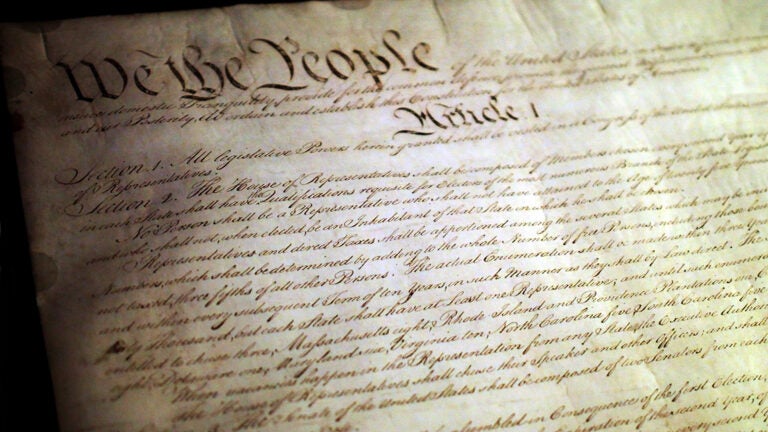
The U.S. Constitution was signed Sept. 17, 1787. (Photo/Mr.TinDC via Flickr)
Celebrate Constitution Day 2017 with USC
Congress designates Sept. 17 as a day to recognize the value and history of the guiding document; USC marks the occasion with a panel discussion on electoral reform Tuesday
We the People of the United States, in Order to form a more perfect Union, establish Justice, insure domestic Tranquility, provide for the common defence, promote the general Welfare, and secure the Blessings of Liberty to ourselves and our Posterity, do ordain and establish this Constitution for the United States of America.
— Preamble to the Constitution of the United States
In 2004, Congress passed legislation establishing Constitution and Citizenship Day, a federal holiday commemorating the ratification of the U.S. Constitution on Sept. 17, 1787. USC invites you to join the entire Trojan Family in observing the 230th anniversary of this historic event.
In honor of Constitution Day, the Jesse M. Unruh Institute of Politics at the USC Dornsife College of Letters, Arts and Sciences is partnering with ProCon.org to host an Issues Debate on Electoral Reform. The Electoral College, created by the Founding Fathers and embedded in the Constitution, allowed for each state to determine how to allocate the electors provided to them. Critics say that the winner-take-all method is not representative of a state’s true voting population. Given how close the 2016 presidential election was, there is a renewed focus on this issue and a renewed focus on ensuring representation of and participation from the electorate.
In this event, the panelists will discuss the pros and cons of various alternatives to the winner-take-all system, such as rank-choice voting, proportional allocation and congressional district voting. They will look at how these methods may or may not improve voter participation and the challenges associated with each.
Join us for this engaging conversation at Ground Zero at 6 p.m. Sept. 12.
Panelists:
- Ralph G. Neas, former executive director, Leadership Conference on Civil Rights.
- Leslee Sherill, former vice president, ABC News.
- Pete Peterson, dean, Pepperdine University School of Public Policy; former candidate, California secretary of state.
- Trevor Potter, former chairman, Federal Election Commission.
The discussion will be moderated by Robert M. Shrum, holder of the Carmen H. and Louis Warschaw Chair in Practical Politics, professor of the practice of political science and director of the Unruh Institute.
Background on the U.S. Constitution
On Sept. 17, 1787, 39 of the 55 delegates attending the Constitutional Convention signed the U.S. Constitution, forging a new government for the United States of America.
The result of months of strenuous debate over the structure and powers of a new federal government, the U.S. Constitution is a testament to cooperative statesmanship and the art of politics. In fact, in his proclamation creating the first national Thanksgiving Day on Thursday, Nov. 26, 1789, George Washington noted that the holiday should be a time for the people of the United States to give thanks, among other things, for “the peaceable and rational manner” in which the Constitution had been established.
Since the Bill of Rights was adopted on Dec. 15, 1791, the U.S. Constitution has been amended only 16 times. Providing an intricate system of checks and balances among the various branches and levels of government, and assuring the basic individual liberties that are essential to a free and democratic society, this remarkable document has proved extraordinarily adaptable to the needs of a changing society. It also has served as an inspiration and a model for other countries around the world.
The National Archives has posted a variety of materials about the Constitution available through these links:
The Signers of the Constitution
The Bill of Rights: Amendments 1-10
The Bill of Rights: Amendments 11-27
